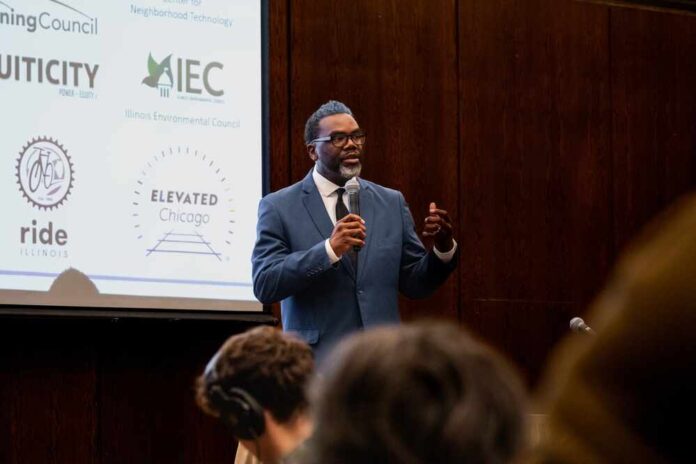
The question seemed simple enough. “As a former educator and longtime employee of the Chicago teachers union, what grade would you give the current system and why?” Chicago Mayor Brandon Johnson had the floor at the Economic Club of Chicago. His answer, however, ignited debate.
“I personally don’t give a lot of attention to grades,” Johnson said. “My responsibility is not merely to just grade the system but to fund the system. That’s how I am ultimately going to grade whether our public school system is working — based upon the investments we make to the people who rely on it.”
Saying the quiet part out loud:
Pressed on Chicago public schools' failure to educate children, mayor responds he doesn't really grade by results. He grades by how much money he gives schools. 🤡
In other words, schools aren't for educating kids. They're for fleecing taxpayers.…
— Peter St Onge, Ph.D. (@profstonge) September 12, 2023
The mayor’s answer revealed a troubling perspective on education. Economist and Mises Institute Fellow Peter St. Onge summed it up in a post on the X platform, formerly known as Twitter: “In other words, schools aren’t for educating kids. They’re for fleecing taxpayers.”
Let’s be clear: Chicago Public Schools (CPS) are in dire need of attention, especially regarding the plight of Black students. Data shows they’re underrepresented in top-rated schools, face disproportionate discipline, and are two to three years behind academically. One might expect the mayor to address these critical issues, but instead, his focus is on “investments.”
Mayor Johnson went on to talk about establishing a “rubric that speaks to the needs as well as the unique dynamics that exist.” But what about outcomes? Dar’tavous Dorsey from the University of Chicago Crime and Education Labs noted that Black students in CPS “feel disengaged from and devalued by the district.”
Nicole Collins, a parent of two CPS students, echoes this sentiment. Her daughter struggles in a school that she feels “predominantly just caters to the Hispanics.” Despite asking for help, the teachers reportedly told her, “We don’t have time to help you one-on-one.”
It’s a stark contrast: On one side, a mayor says that the way to grade a school is by the money pumped into it. Conversely, students and parents are desperate for a quality education that meets their unique needs. Pouring money into a system is meaningless if it isn’t reaching the students effectively.
America has invested heavily in public education through various programs. Yet, Mayor Johnson’s attitude mirrors the failed logic that has plagued our country’s education system for decades, claiming the answer to poor educational outcomes is simply investing more money. That approach overlooks the essential fact that without an effective strategy, funding alone won’t fix the problems.
In the end, Mayor Johnson’s comments reflect a disturbing lack of urgency for a city grappling with challenges in education. Parents, students, and taxpayers deserve better than a leader who thinks the solution to the education crisis is merely a question of funding. There must be a focus on results, accountability, and fulfilling the essential obligations to students. Otherwise, Chicago risks remaining a case study in how not to educate America’s youth.
































